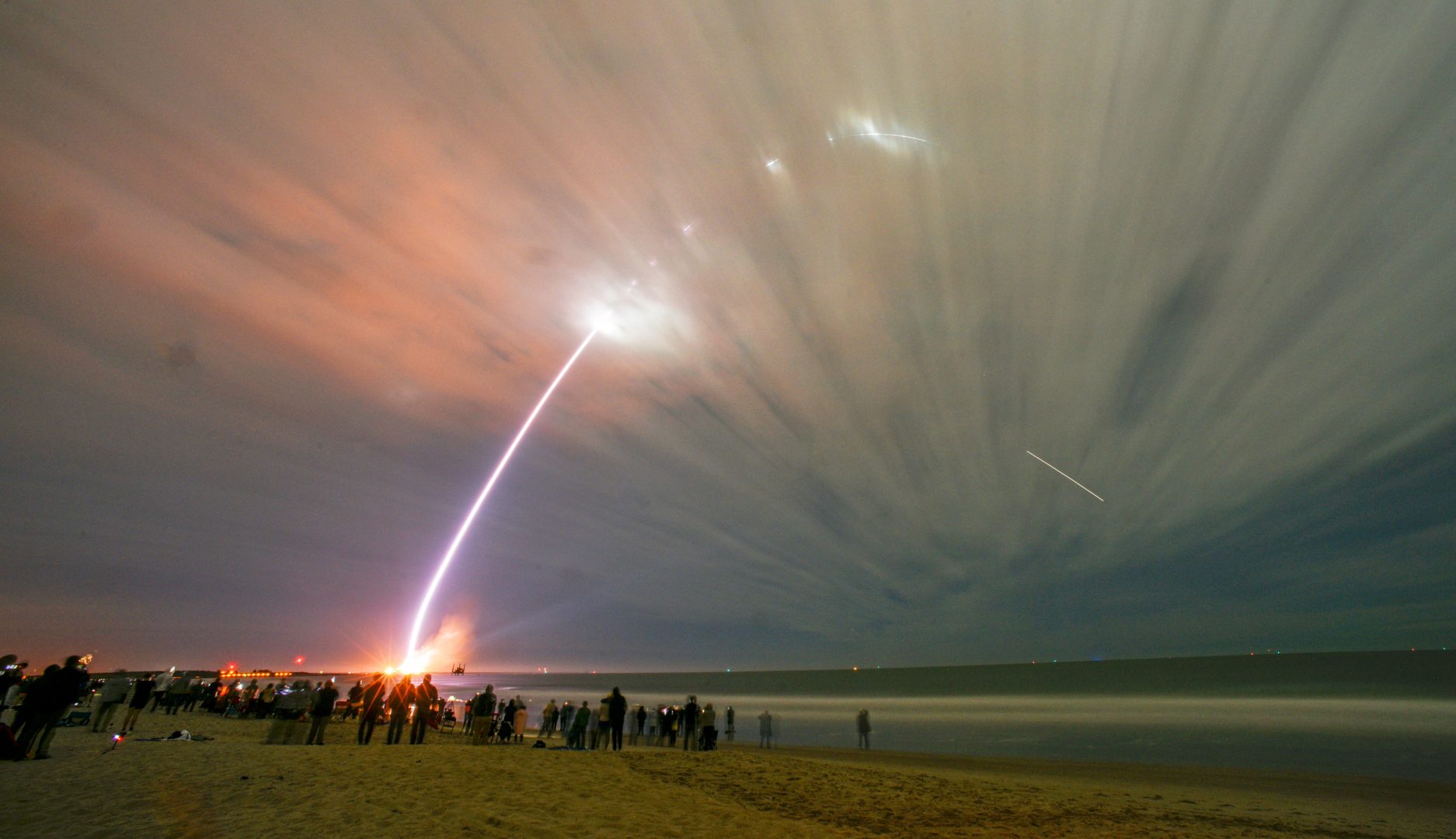Blue Origin’s New Glenn Rocket Reaches Orbit in Historic Launch
Blue Origin’s New Glenn rocket successfully launched into space early Thursday morning, marking a historic milestone for Jeff Bezos’ space company. The inaugural flight is a major step forward in the company’s ambition to compete with SpaceX in the satellite launch industry.
A Long-Awaited Milestone for New Glenn
Standing 30 stories tall and equipped with a reusable first stage, New Glenn lifted off at 2 a.m. ET (0700 GMT) from Cape Canaveral Space Force Station in Florida. Its seven engines roared to life, cutting through the cloudy skies on its second attempt this week.
Cheers erupted at Blue Origin’s headquarters in Kent, Washington, and its rocket factory in Florida when the second stage successfully reached orbit. Ariane Cornell, Blue Origin’s vice president, declared on the company’s live stream, “We hit our key, critical, number-one objective: we got to orbit safely. And y’all, we did it on our first go.”
Despite the orbital success, the rocket’s reusable first-stage booster failed to land as planned on an Atlantic Ocean barge. Telemetry was lost shortly after liftoff, and Cornell later confirmed, “We did in fact lose the booster.”

Decades of Development Culminate in a Launch
The successful mission marks the culmination of a decade-long development process that cost billions of dollars. It also represents the first time in 25 years that Blue Origin has sent a rocket into orbit since Bezos founded the company.
Ahead of the launch, Bezos acknowledged his nerves about the booster landing, calling it “icing on the cake” compared to the primary goal of reaching orbit.
The rocket carried the prototype of Blue Origin’s Blue Ring vehicle, a spacecraft designed for satellite servicing and national security missions.
Competition in the Growing Space Industry
New Glenn enters the scene amid fierce competition from SpaceX, United Launch Alliance, and NASA. Boasting twice the payload capacity of SpaceX’s Falcon 9, New Glenn is poised to handle larger satellite batches. However, SpaceX continues to dominate with its lower pricing, starting at $62 million per Falcon 9 launch.
Blue Origin is gearing up for a packed schedule, including 27 launches for Amazon’s Kuiper satellite network, which aims to rival SpaceX’s Starlink. New Glenn’s development faced delays over the years, but Bezos intensified efforts in 2023, naming Dave Limp as CEO to inject urgency into the project.
The rocket now joins other recent U.S. entrants, including NASA’s Space Launch System and United Launch Alliance’s Vulcan rocket. Meanwhile, SpaceX’s Starship, still in development, promises cheaper and fully reusable space flights, adding further pressure to the market.
As Blue Origin looks to solidify its place in the space race, New Glenn’s success signals a promising start for the company’s ambitions.
With inputs from Reuters





